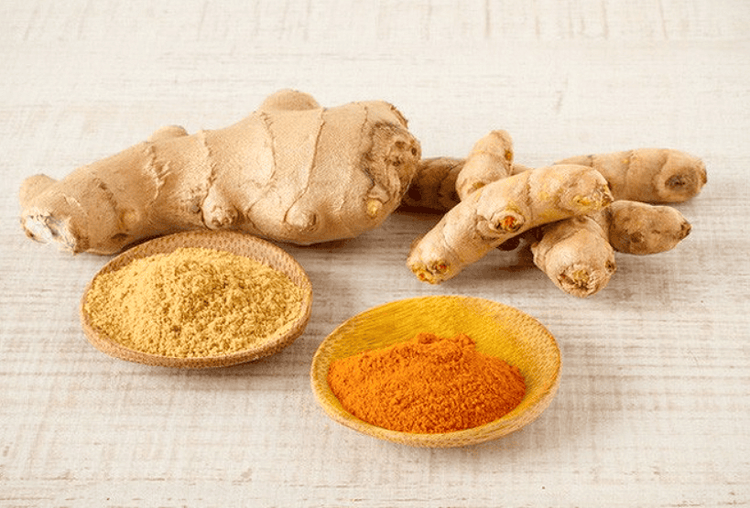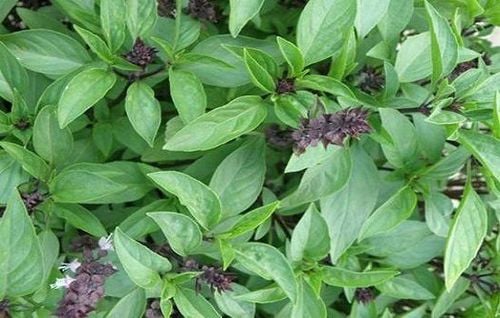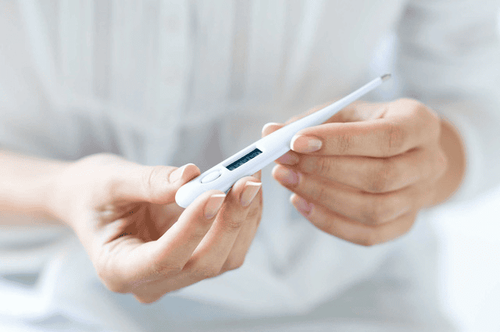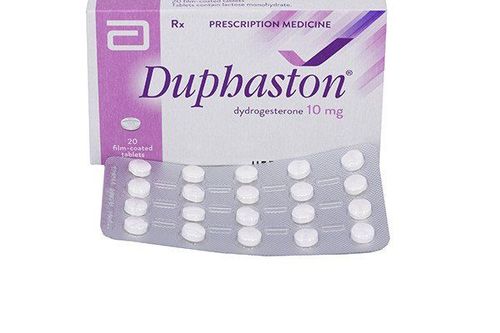Evening primrose seeds are rich in an omega-6 fatty acid called GLA (gamma-linolenic acid). Many health experts believe that GLA and other omega fatty acids support healthy hormone balance, so they recommend taking evening primrose oil for people with PMS and PCOS.
1. Overview of Evening Primrose Oil
Evening primrose is a plant native to North and South America, growing throughout Europe and parts of Asia. The flowers are yellow, open at dusk and fade during the day. The oil from the seeds of the primrose is used medicinally.
Evening primrose oil is used for premenstrual syndrome (PMS), symptoms of menopause, arthritis, swelling, and other conditions. However, there is no scientific evdence to support its effectiveness.
In food, evening primrose oil is used as a source of essential fatty acids. It is also used in soaps and cosmetics.
In the UK, evening primrose oil was once used to treat eczema and breast pain (3-4 grams/day). This is because some women with this condition do not have enough fatty acids. In addition, fatty acids can also reduce inflammation caused by arthritis and eczema. Evening primrose oil is rich in fatty acids.
However, the UK Medicines Control Agency (MCA) has withdrawn the license for evening primrose products marketed as prescription medicines for this use. The reason for the withdrawal is that there is insufficient evidence to show that they work. Although manufacturers disagree, they have not published studies to demonstrate the effectiveness of evening primrose in the treatment and management of these conditions.

2. Other Precautions When Taking Evening Primrose Oil
2.1. Side Effects and Safety
- When taken orally: Evening Primrose Oil is SAFE for most people when taken orally in doses up to 6 grams/day. It may cause mild side effects, including stomach upset, nausea, diarrhea, and headache in some people.
- When applied to the skin: Evening Primrose Oil is SAFE for most people.
2.2. Special Precautions and Warnings
- Pregnancy and Breast-Feeding: Taking Evening Primrose Oil orally is POSSIBLY SAFE during pregnancy. Taking up to 4 grams per day of evening primrose oil during the first 10 weeks of pregnancy appears to be safe, but there is limited research to confirm this. Therefore, it is advisable to avoid its use. In addition, taking evening primrose oil in the final weeks of pregnancy may slow down labor, so it should not be used near the end of pregnancy.
Taking evening primrose oil while breastfeeding is POSSIBLY SAFE, but it is best to check with your doctor first.
- Children: Evening primrose is LIKELY SAFE for most people when applied to the skin and taken orally in doses up to 6 grams per day.
- Bleeding disorders: There is concern that evening primrose may increase the chance of bruising and bleeding. So do not use it if you have a bleeding disorder.
- Epilepsy or another seizure disorder: There is concern that taking evening primrose makes some people more likely to have seizures.
- Schizophrenia: Seizures have been reported in people with schizophrenia treated with phenothiazines, GLA (a chemical found in evening primrose oil), and vitamin E. Consult your doctor before starting.
- Surgery: Evening primrose may increase the risk of bleeding during or after surgery. Stop use at least 2 weeks before a scheduled surgery.

2.3. Drug Interactions
- Major Interactions: Do not combine evening primrose oil with drugs that slow blood clotting (Anticoagulants / Antiplatelets) to avoid increasing the risk of bruising and bleeding. Because evening primrose oil contains GLA (gamma-linolenic acid) which slows blood clotting. Some drugs that slow blood clotting include: aspirin, clopidogrel (Plavix), diclofenac (Voltaren, Cataflam, others), ibuprofen (Advil, Motrin, others), naproxen (Anaprox, Naprosyn, others), dalteparin (Fragmin), enoxaparin (Lovenox), heparin, warfarin (Coumadin), and others.
- Moderate Interactions: Be careful when combining evening primrose oil with drugs used in surgery (Anesthesia). A person who was taking evening primrose oil and other drugs had a seizure during surgery. However, there is not enough information to know exactly what causes seizures. Be sure to tell your doctor what natural products you are using before surgery. To be safe, you should stop taking evening primrose oil at least 2 weeks before surgery.
- Finally, taking evening primrose oil with phenothiazines may increase the risk of seizures in some people. Some phenothiazines include: chlorpromazine (Thorazine), fluphenazine (Prolixin), trifluoperazine (Stelazine), thioridazine (Mellaril), and others.

3. What medications should people with PCOS take?
In addition to evening primrose oil helping to relieve menstrual cramps, irregular periods, improve cholesterol levels, and oxidative stress associated with PCOS, people with PCOS can also take:
3.1. Supplements
Supplements are thought to help regulate hormones, insulin resistance, and inflammation associated with PCOS. However, it is important to consult your doctor before taking any supplements as some may interfere with other PCOS treatments and prescription medications.
Tips for those wondering what to take for Polycystic Ovary Syndrome include:
- Inositol (Vitamin B8): Inositol is a B vitamin that may help improve insulin resistance. It has also been found to increase fertility in some women with PCOS.
- Chromium: Chromium supplements may improve your Body Mass Index (BMI), which may help with PCOS. It may also stabilize insulin resistance by helping the body metabolize sugar.
- Cinnamon: Cinnamon comes from the bark of the cinnamon tree. Cinnamon extract has been shown to have a positive effect on insulin resistance. Cinnamon may also regulate menstruation in women with PCOS.
- Turmeric: Curcumin, the active ingredient in turmeric, promises to reduce insulin resistance and fight inflammation.
- Zinc: Zinc is a trace element that can boost your fertility and immune system. Zinc also helps improve excessive or unwanted hair loss. In addition to taking supplements, you can also eat red meat, beans, nuts, and seafood to get more zinc in your daily menu.
- Vitamin D and Calcium combination: Vitamin D is an important hormone for your endocrine system. Vitamin D deficiency is common in women with PCOS. Vitamin D and calcium can improve irregular periods and aid ovulation.

- Cod liver oil: Cod liver oil contains vitamins D and A, as well as high amounts of omega-3 fatty acids. These acids can regulate periods and eliminate fat around the waist.
- Berberine: Berberine is an herb extracted from the Barberry plant, used in Chinese medicine to help with insulin resistance. If you have PCOS, berberine can increase your metabolism and balance your body's hormonal responses.
3.2. Herbs
When your body can't regulate insulin, this hormone can build up and increase male sex hormones - called androgens. Certain herbs help balance your hormones and may also help relieve other symptoms of PCOS, such as irregular periods.
While they may have some benefits, be cautious and talk to your doctor before taking any of the following herbs:
- Maca Root: The root of the maca plant, also known as Peruvian ginseng, is a traditional herb used to increase fertility and libido. Maca root may help balance hormones and reduce cortisol levels, as well as treat depression, a symptom of PCOS.
- Ashwagandha: Ashwagandha, also known as Indian ginseng, helps balance cortisol levels, improving stress and symptoms of PCOS.
- Basil: Basil, also known as holy basil and known as the queen of herbs, helps address chemical and metabolic stress. Basil may help lower blood sugar, prevent weight gain, and reduce cortisol levels.
- Licorice Root: Licorice root contains a compound called glycyrrhizin, which has some unique properties. Licorice root has been suggested as an anti-inflammatory, with benefits for sugar metabolism and hormonal balance.
- Tribulus Terrestris: Tribulus Terrestris has been shown to stimulate ovulation and support healthy menstruation, as well as reduce the number of ovarian cysts.
- Chasteberry: Chasteberry has been used for centuries to treat reproductive conditions, but more research is needed. It may improve some PMS symptoms.

3.3. Probiotics
Probiotics not only aid in digestion and gut health but may also play an important role in managing PCOS. They can reduce inflammation and regulate sex hormones like androgens and estrogens. Consider taking probiotic supplements and eating probiotic-containing foods, such as kimchi and kombucha.
While evening primrose oil or other natural nutritional supplements may be helpful for people with PCOS, it is important to consult your doctor first to develop a treatment plan. In general, adopting a healthy lifestyle and working closely with your doctor through regular, scheduled checkups is the most important thing you can do to help yourself.
To prevent complications caused by PCOS, patients need to have regular gynecological check ups to detect dangerous signs early and get advice on effective treatment, appropriate nutrition, and lifestyle, to avoid affecting their health and fertility later on.
To arrange an appointment, please call HOTLINE or make your reservation directly HERE. You may also download the MyVinmec app to schedule appointments faster and manage your reservations more conveniently.
References: healthline.com, webmd.com, naturesbest.co.uk













